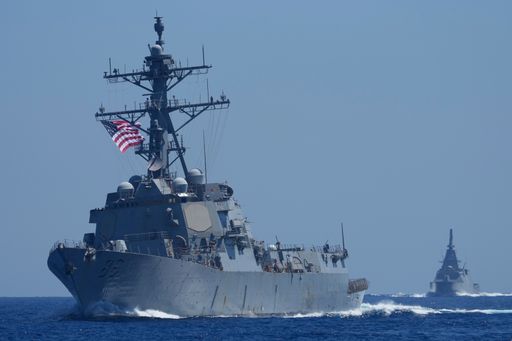US President Donald Trump has welcomed Philippine President Ferdinand Marcos Jr. to the White House, saying the two countries were close to finalising a trade agreement.
"We're going to talk about trade today, and we are very close to finishing a trade deal, a big trade deal, actually," Trump told reporters on Tuesday at the start of his meeting with the Philippine leader.
Marcos is the first Southeast Asian leader to meet Trump in his second term.
Trump has already struck trade deals with two of Manila's regional partners, Vietnam and Indonesia, but has been driving tough bargains in talks, even with close allies. Washington needs to keep onside in its strategic rivalry with China.
The United States had a deficit of nearly $5 billion with the Philippines last year on bilateral goods trade of $23.5 billion. Trump this month raised the threatened "reciprocal" tariffs on Philippine imports to 20 percent from 17 percent threatened in April.
Trump said the two countries did "a lot of business" with each other, saying he was surprised to see what he called "very big numbers" that would only grow under a trade agreement.
Gregory Poling, a Southeast Asia expert at Washington's Centre for Strategic and International Studies, said Marcos might be able to do better than Vietnam, with its agreement of a 20 percent baseline tariff on its goods, and Indonesia at 19 percent.
Trump underscored the importance of the US-Philippine military relationship. "They're a very important nation militarily, and we've had some great drills lately," he said.

Marcos, who arrived in Washington on Sunday, went to the Pentagon on Monday for talks with Defence Secretary Pete Hegseth and later met with Secretary of State Marco Rubio. During his trip, he will also meet US business leaders investing in the Philippines.
Philippine officials say Marcos will stress that Manila must become economically stronger to serve as a truly robust US partner in the Indo-Pacific.
Philippine Assistant Foreign Secretary Raquel Solano said last week that trade officials have been working with US counterparts seeking to seal a "mutually acceptable and mutually beneficial" deal.















